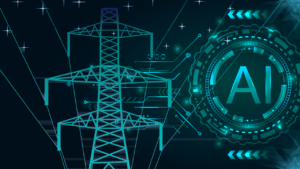CNN’s Anderson Cooper recently discussed homeland security on his blog [Does Homeland Security Matter?] Since it is a relatively short post, I reproduce here in full:
“I’ll ‘fess up. Before I read Stephen Flynn’s new book, “Edge of Disaster,” I never gave much thought to the issue of homeland security. For me, this issue was all about long lines at the airport, color-coded alerts and forfeited moisturizer. I’ve always felt safe in America, even after 9/11. And if something’s going happen, it’s going to happen, right? Nothing I can do about it. Nothing any of us can, I thought, not even the government. Uh, wrong. What Flynn’s book showed me (and what tonight’s “360” special “Edge of Disaster: Are You Prepared?” will hopefully show you) is that there are simple, concrete things we, as a society, can do to make ourselves safer. The scary thing is, Flynn says we’re not doing them. In fact, he says, we actually seem to be making ourselves more vulnerable with each passing year, and not just to terrorism, but to natural disasters of Katrina-like proportions. About a month ago, we embarked on a cross-country journey to see for ourselves what Stephen Flynn was talking about. Among our stops: Philadelphia, Boston, Rhode Island and California. What we found was startling. From coast to coast, the inter-connected foundations of our nation are crumbling: levees, waterways, the electrical power grid that keeps our lights on. Flynn says they could tumble like dominoes in the face of a natural disaster or a terrorist assault. By allowing them to deteriorate, we have made ourselves vulnerable, Flynn says, but he thinks a renewed push to invest in the United States’ infrastructure would go a long way toward making all of us safer.”
CNN provides Anderson Cooper with a bully pulpit that reaches a much broader audience than this blog, so, believing this is an important subject deserving fuller discussion, I submitted the following comment to his site:
Mr. Cooper’s blog about America’s crumbling infrastructure brings to light an important issue. Its importance, however, goes far beyond simply remaining safe from terrorist attacks. Critical infrastructure is essential to America’s economic health. China and other newly modern and integrating countries, for example, are building critical infrastructure at a rapid rate. This new critical infrastructure will allow those countries to be strong competitors on the global economic stage. The challenge is that ownership and responsibility for various components of America’s critical infrastructure are spread over public and private sectors. Rebuilding that infrastructure will take both strong leadership and continued financial, political and technological commitment. Corporations charged with owning and/or managing critical infrastructure will invest where there is a relatively short-term return on investment; however, where there is no reasonably short-term ROI, then investment will languish. While the best solution would be for public and private stake holders to work together to rebuild critical infrastructure, it probably won’t happen without significant government pressure.
Beyond rebuilding America’s crumbling infrastructure, Mr. Cooper is really addressing the issue of how we can make America more resilient to man-made and natural disasters. I spend a lot of time thinking and writing about resilience. By resilience I mean more than simply being able to bounce back once a crisis takes place. I believe that nation states, organizations and individuals need to be systemically adaptable to a rapidly changing environment. When there is a disaster, systemic adaptability permits us to snap back from the shock, but also makes our organizations and social systems self-healing and self-optimizing. In other words, we deploy a form of organizational judo that permits us to respond to the disaster or attack and in responding learn from the threat or vulnerability. In responding dynamically, we make ourselves even stronger and more adaptable. My company is working with public and private organizations to find ways of becoming proactive in the search for resilience. This search is not just on the national level, but in the global arena as well. To that end, I helped establish the Institute for Advanced Studies in Global Resilience and serve as its Executive Director. Our agenda is to make individuals, corporations, governmental agencies, transnational organizations and nation states optimally resilient.
I welcome ideas and support from anybody interested in this topic. I appreciate the fact that Esquire magazine saw the benefit of this work and highlighted the Institute in its December 2006 issue. The Institute is new and just getting on its feet, but I hope to attract an eclectic group of thinkers who are willing to contribute to the discussion about how to make the world a safer and more resilient place. Global resilience is not just good for America, it is good for other developed countries and, just as importantly, critical to helping those stuck in poverty to break free from the vicious cycle that keeps them from improving their standard of living and get connected with the rest of the world. Mr. Cooper is correct that efforts to make the America more resilient must begin at home, with each of us getting involved.




